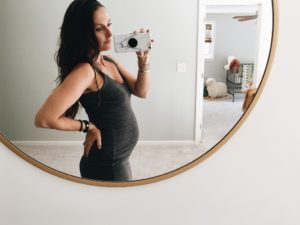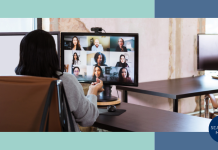If you’ve been following along our story about loss here and our redemption story here, you know we’ve gone through quite the journey trying to conceive to get where we are. Also, if you’re one of those people who gets pregnant from kissing your husband, you are so lucky. I was that person with my first pregnancy. And I’m sure I shared more than once “we got pregnant the first month we tried!” For some reason, that was not our story when trying for number two. I wanted to share a little bit about what we did leading up to our pregnancy. If you are struggling trying to conceive, I’ve been there. I know the late nights laying in bed and the google searches you grab and punch into your phone at 1am…
- “how to get pregnant”
- “early pregnancy signs”
- “earliest I can test for pregnancy”
- “late ovulation”
- “fertility prayers”
- “best sex positions to get pregnant”
And this is just the beginning. These searches ranged from sensible questions to absolute ridiculous ones. I’m here to tell you these questions are completely normal. I’m also here to tell you to go ahead and google away! I know every doctor out there will tell you to stay off google. Not me. The internet is FULL of stories, support, facts and myths. I am actually the one who discovered I was ovulating late. And had a short luteal phase. Through GOOGLE.
After my miscarriages, I saw a fertility doctor who did the standard checklist. My husband and I were tested for everything: no abnormalities. I was put on a progesterone insert because “some women who miscarry do so because of a lack of progesterone.” While on a progesterone insert, you need to take ovulation tests so that you can start the insert within the proper timing after ovulation. I noticed I was ovulating around day 21 or 22 and still getting my period around day 28.
After many google searches, I discovered I had “short luteal phase.” I didn’t even KNOW what a luteal phase was before this. FYI – it’s the time between when you ovulate and when your period comes. Another FYI – your luteal phase should be 10 days or longer. If it is not, you may struggle to get pregnant, or keep a pregnancy. That must be it! I marched into my fertility doctor’s office as soon as I could get in there to tell them my findings.
At the time, I was angry.
Why was I finding this out? Why hadn’t my DOCTOR figured this out?! After more research, and more google searches, I came to the conclusion that fertility is a tricky thing. Unfortunately, it can be a big game of trial and error and there’s no one solution that works on everyone. I was put on Clomid for four months. In simple terms, Clomid is a drug that is used commonly for women with PCOS to force them to ovulate. In my case, we tried to use Clomid to force me to ovulate when I was supposed to, rather than later in my cycle. Sadly, it failed.
After my months on Clomid, I had another appointment to meet with my doctor. We had one last thing we would try before he recommended IVF. BUT, my insurance didn’t cover IVF. So began my internal struggle about whether I spend the money out of pocket to try IVF, or, do we consider starting the process of adoption? The next month I was set up with my prescription to try a different drug. I had the prescription in hand, which was basically a lesser form of Clomid that I forget the name of now. I waited for my period to come. And waited. And waited.
It wasn’t until my period was about 2 weeks late that I finally decided to take a test. Positive. DARK positive. I was in absolute shock.
So, what finally worked when we were trying to conceive?
The short answer is, I have no idea. I don’t have an answer on “how to get pregnant” if you are trying to conceive. But what I can tell you is some of the steps I took in my journey. When you’re struggling with fertility, a lot of times you feel as though things are out of your hands. That feeling didn’t settle well with me. I did SO much research and did everything I could to be sure if there WAS something I was able to do that would help out my chances, that I was doing it. It felt good to do something.
- Figure out when you are ovulating. This is one of THE MOST important things. I have read stories of women trying for a year before they go to a fertility doctor only to find out they weren’t ovulating at all! Or in my case, I had three miscarriages and was on progesterone suppositories for four months before I figured out I was ovulating late and had a short luteal phase. Ovulation kits are cheap. Go on Amazon and buy a 50 pack. You don’t need the expensive ones.
- Keep a healthy diet. I read a lot about foods that can help with your fertility. I ultimately decided to try a Whole30 to reset my body and fill it with whole, good foods. I LOVED this diet. It helped me realize what types of food my body might not respond the best to, and also gave me an arsenal of healthy meals to turn to when cooking at home. Even now, I stick to a “whole” diet about 80% of the time. If I’m out to eat, or craving a sweet treat, I’ll give myself a little grace and allow it. However, for the most part we stick to “whole” meals in our home.
- Get rid of toxins in your home and in the products you use. The average woman applies over 300 chemicals daily to her body through four types of products: makeup, hair care, skin care and soap. And that doesn’t include the chemicals we are exposed to through products such as air fresheners, candles, cleaning products, and laundry products. Do a favor for yourself, your hormones, and the environment you put yourself in: toss the toxins. Another plus, I had so much fun learning about toxins in our home and replacing them with natural alternatives. I experimented with lots of DIY’s at home and finding ways
 to make things knowing exactly what I was putting into them. I did most of this using essential oils and simple products you can purchase off amazon or at your local grocery store. Read more about what we use here.
to make things knowing exactly what I was putting into them. I did most of this using essential oils and simple products you can purchase off amazon or at your local grocery store. Read more about what we use here.
And of course, reach out if you are struggling with fertility and trying to conceive. If you have any questions or even just need a friend to talk to about what you’re going through, confiding in a community can be amazingly helpful. Sharing my story helped me to heal and get through some of the struggles I was going through.










